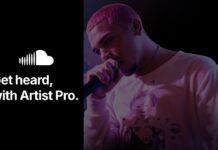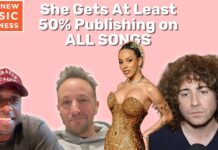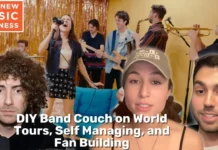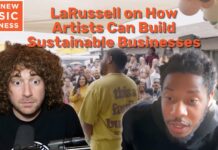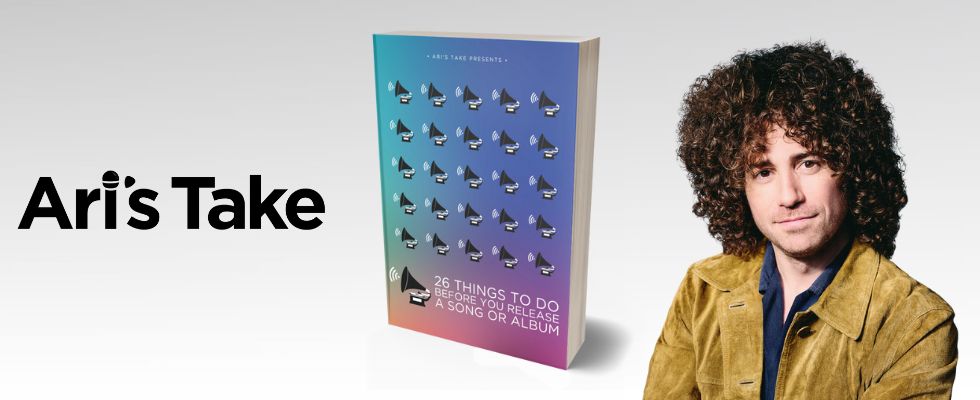Robert Brown, the founder and front man of the steampunk band Abney Park remembers one week in March 2020 when every one of their upcoming concerts got canceled.
The band had been gigging for two decades, supporting the four members and their families on live performances.
They sprang into action and booked their first livestream concert (ever). They sold tickets via Indiegogo—enabling them to sell tiered ticket packages. A $15 ticket got you a link to the livestream. A $25 ticket got you the livestream and a download to watch it later. A $35 ticket got you the livestream, download and mp3s from the show.
And a $100 ticket got you a ticket to the afterparty.
What was the afterparty? Well, it was just another concert, except in between each song, every member of the band took a shot of hard liquor.
This first livestream show, after only being on sale for one week, made them $20,000.
Abney Park are not superstars. They are a hardworking band with a die-hard fanbase. Their social media numbers pale in comparison to the hottest newcomers of the moment, sitting at around 6,000 Instagram followers. “I haven’t used Instagram in ages,” Brown told me on the phone when I informed him that his link in bio wasn’t working. They have around 70,000 monthly listeners on Spotify and 50,000 followers on Facebook.
+How to make a living livestreaming with a small fanbase
Their ticket buyers, by and large, come from their email list of 10,000 dedicated fans.
Because of the incredible success of the first livestream concert, they decided to keep them going. As they played more shows and made more money, they upgraded their gear.

Soon enough, they had 4 GoPros, an ATEM Mini video mixer, a DMX lighting rig that syncs up to MIDI. A “producer” (Brown’s teenage daughter) to mix the video on the spot. And a big TV screen to see themselves and help them become better performers.
“Most independent bands don’t know how to be on camera,” Brown says. “The entire concert became a selfie concert. It taught us a level of professionalism. You don’t have an audience, but you have to pretend you do.”
Mind you, the cameras and video mixer cost them under $700.

They streamed the shows on YouTube Live. Yes, it’s not the most protected way—the link could theoretically get shared for free—but it didn’t seem that anyone wanted to hurt them in this way. And it definitely hasn’t hurt their bottom line.
They average about $27,000 per show, and in just about a year and a half, from just 10 livestream concerts, they made over $250,000.
Yes, they’ve had their fair share of technical difficulties, but it wasn’t anything they couldn’t handle. Most of the issues came from bandwidth—the internet being too slow. Thirty minutes before the show, they unplug every device hooked up to the internet and turn off Wi-Fi from everything other than the laptop running the stream. And three days before the show, they do a full test stream. They meticulously check the mix (“Our guitarist runs the board,” says Brown, “so we have to make sure the guitars aren’t too loud”) and the video. Once their check is over, they don’t touch anything until they go live. Their producer is on hand to handle any issues that arise during the stream, such as an HDMI cable cutting out, or to adjust the mix when fans complain in the chat box about the guitars being too loud.

+She went from 0 to 1,000 followers and a full-time income from Livestreaming in 4 months
Indiegogo, while not typically used as a ticketing platform, has served them well. Indiegogo handles all customer support. They refund people who can’t make the show. They handle broken-link issues. You name it. Yes, Indiegogo takes a 5% commission (on top of the ≈ 3% transaction fees), but it’s worth it to the band when dealing with thousands of ticket buyers and potentially hundreds of customer support requests.
And although there are now more secure ways to livestream privately and sell tickets, Brown swears by this method.
The chat box becomes the central meetup for fans.

Mid-show, the band will share memories of the last time they played the song or shenanigans that happened in previous livestream “afterparties”—inevitably getting more to buy-in to the $100 upsell.
Now that live music is back in full swing, Brown doesn’t really see a need to hit the road ever again.
“It’s pretty hard to say yes to a $5,000 show when I’ve been doing $30,000 shows,”
-Robert Brown, Abney Park bandleader
Abney Park has no plans to ever stop doing these livestream concerts, and their fans don’t seem to fatigue of them either. They just played their most recent livestream show last Saturday.
“Will we go back to playing in-person shows?” Brown pondered eighteen months after the initial Covid quarantine began. “I would, because I want to get out of the house so bad.”

If you’re interested in learning how to livestream effectively and successfully no matter what size fanbase you have, join the Ari’s Take Academy course Livestreaming for Musicians.
“I purchased the course because I knew about Ari’s Take Academy’s strong reputation, and I wanted expert help to get started. Within days of purchasing the course, I felt confident enough to start streaming regularly on multiple platforms. Absolutely all the information I needed was there, presented simply and clearly, and the amazing group helped me troubleshoot and gave me invaluable tips. In four months on Twitch, I went from zero followers to over a thousand, and I make enough money off my streams that I can officially say that livestreaming is now my primary source of income. I could not possibly have imagined getting this much value out of a course. It’s probably the best decision I’ve made to date for my career.” – Emily Henry
Enroll in Livestreaming for Musicians here

